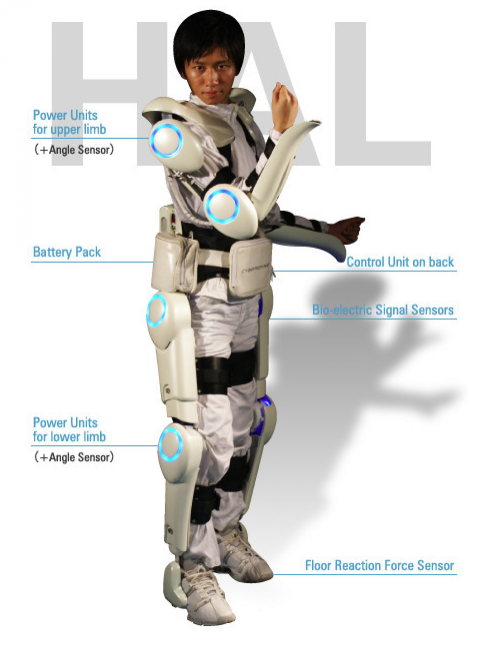First-Ever Robot Approved As Medical Device: Japanese HAL Cyborg Will Start Clinical Trials In Europe
The first wearable robot has been certified for use as a medical device in Europe. HAL, a robot designed by Tokyo, Japan-based Cyberdyne Inc. received international certification to help people without full use of their legs.
According the Cyberdyne’s website, HAL is a “cyborg-type robot that can supplement, expand or improve physical capability.”

HAL picks up on weak biosignals beneath the skin that are created from nerve signals sent from the brain to a muscle when a person tries to move. Based on these signals, HAL moves in unison with the person’s muscle movement, helping a disabled person use his or her legs.
HAL was approved by TUB Rheinland, a German-based safety certification service, after Cyberdyne reportedly made more than 130 safety improvements to the robot. The certification allows Cyberdyne to begin clinical trials with HAL in Europe.
Cyberdyne, a start-up from the University of Tsukuba, will export a dozen HAL robots to a German hospital group, Bergmannsheil, to begin clinical testing with 100 people with leg disabilities as the result of spinal cord injuries, strokes and muscular dystrophy.
Each subject will undergo three months of rehabilitation therapy with HAL. The study will analyze how the robot helps people walk.
Of course, science fiction fans my recognize the name "Cyberdyne" as the company that produced an army of self-aware cyborgs in the 'Terminator' series. Additionally, HAL was the name of the malicious artificial intelligence computer in the film "2001: A Space Odyssey."
"We strongly believe that technologies should be designed for the benefits of humankind," Cyberdyne said on its website. "We will be focusing on strong R&D and will introduce very new products and services to the society."
The goal is to assess whether HAL can be covered by workers’ compensation insurance. If trials are successful, Cyberdyne plans to sell the HAL robot in the U.S. and Asia. Cyberdyne says it also wants HAL to eventually aid in heavy labor, rescue support and entertainment.
© Copyright IBTimes 2025. All rights reserved.






















